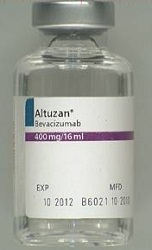One of the big challenges of slowing the flow of counterfeit drugs is its international nature. Fakes may be made in China, for example, and make stops in several continents before finding their way into the legitimate supply chain. In that regard, the international policing agency Interpol is well suited to fight the growing business in fakes. But Interpol is a little short on funds, so more than two dozen drugmakers are kicking in some money to help.
The 29 companies are providing Interpol with €4.5 million ($5.9 million) over three years so that Interpol can train local authorities on what to look for and how to handle the evidence, according to the Associated Press. Tight budgets and demands to fight other high-profile crime like human trafficking has made it hard for Interpol to keep up, Aline Plancon, who oversees Interpol's counterfeiting program, told the news agency. Efforts by Interpol include last year's sweep of internet sites around the world that were selling counterfeits.
 |
| Courtesy of the FDA |
The companies joining the effort include a "Who's Who" of international pharma companies: Amgen ($AMGN), AstraZeneca ($AZN), Eisai, GlaxoSmithKline ($GSK) Johnson & Johnson ($JNJ), Eli Lilly ($LLY), Merck ($MRK), Novartis ($NVS), Pfizer ($PFE), Sanofi ($SNY) and Roche ($RHHBY) are among them. Erectile dysfunction drugs from Pfizer and Lilly are probably the most copied, but counterfeiters have moved up to pricier and more life-saving drugs like Roche's cancer drug Avastin.
The U.S. FDA several times last year alerted physician practices that what they believed were Avastin or other cancer drugs were in fact fakes and would do patients no good if they didn't do them harm. Just last month, the FDA said doctors had bought fakes of Altuzan (bevacizumab), which is the trade name for Avastin in Turkey.
Lilly CEO John Lechleiter, current chairman of the trade group Pharmaceutical Research and Manufacturers of America (PhRMA) told the Associated Press that counterfeiters are quick to adapt to efforts to shut them down. The companies hope the money will help Interpol interrupt those efforts. "This is really meant to cement some of these efforts together," he said. "After the initial (three-year) period, depending on the results, we can certainly extend that out."
- here's the AP story
Special Report: Top counterfeit drug events in 2012